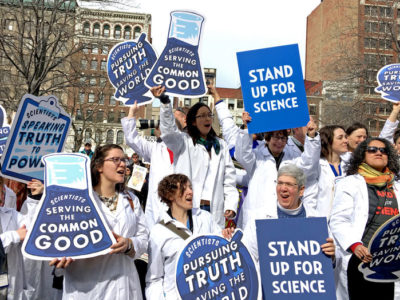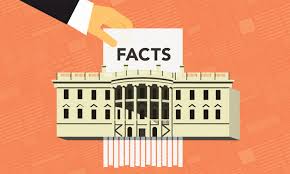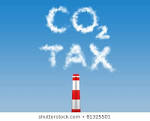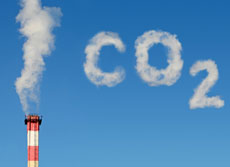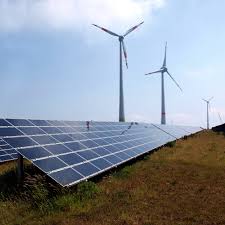environmental economics
Recalculating the Cost of Climate Change
The Biden Administration has already started to revisit this important issue.
“The social cost of carbon” isn’t exactly a household phrase. It’s an estimate of the harm caused by emitting a ton of CO2 over the many decades it remains in the atmosphere. That’s an important factor in calculating the costs and benefits of climate regulations. For an arcane concept, it has certainly caused a lot …
Continue reading “Recalculating the Cost of Climate Change”
CONTINUE READINGWe Need an Environmental Dr. Fauci
Much of environmental law is about protecting public health. But the Trump Administration won’t listen.
During the coronavirus crisis, Dr. Anthony Fauci has become the voice of reason. Much of the public turns to him for critical information about public health, while even Trump finds it necessary to listen. In the Trump era, no one plays that role in the environmental area. The result is a mindless campaign of deregulation …
Continue reading “We Need an Environmental Dr. Fauci”
CONTINUE READINGThe Flight From Evidence-Based Regulation
This Administration specializes in arguments for ignoring the evidence.
The Trump Administration’s major deregulatory efforts share a common theme. They assiduously avoid having to rely on scientific or economic evidence. Confronting that evidence is time-consuming and difficult, particularly when it often comes out the other way. Instead, the Administration has come up with clever strategies to shut out the evidence. The effort to repeal …
Continue reading “The Flight From Evidence-Based Regulation”
CONTINUE READINGFrom the Grand Canyon to Contaminated Cantaloupes – and More
Five books with fresh perspectives on environmental issues.
Law reviews make little effort to track new books, unlike other journals in other disciplines . So it’s pretty much hit-or-miss whether you learn about relevant new books. I wanted to share some interesting finds that have crossed my desk, joined a growing pile of unread books, and then slowly left the pile. The subjects …
Continue reading “From the Grand Canyon to Contaminated Cantaloupes – and More”
CONTINUE READINGPricing Carbon: What Does It Actually Accomplish?
Pricing carbon may not work the way economists thought.
In theory, pricing carbon should incentivize emissions reductions. In reality, it is unclear to what extent that takes place unless the carbon price is very high. This is not to say that pricing carbon is useless, but the main benefits may take different forms. Basically, there are two ways of putting a price on carbon. …
Continue reading “Pricing Carbon: What Does It Actually Accomplish?”
CONTINUE READINGLow-Hanging Fruit
A powerful metaphor can be illuminating, but it can also be highly misleading.
The idea of long-hanging fruit is ubiquitous in environmental policy — sometimes in the form of a simple metaphor, other times expressed in more sophisticated terms as an assumption of rising marginal costs of pollution reduction. It’s an arresting metaphor, and one that can often be illuminating. But like many powerful metaphors, it can also …
Continue reading “Low-Hanging Fruit”
CONTINUE READINGEconomists vs. Environmentalists: Time for Deténte?
You don’t have to love economics to see it as a possible ally.
Cost-benefit analysis has long been the target of environmentalist ire. But one lesson of the Trump years has been that economic analysis can be a source of support for environmental policy — it is the anti-regulatory forces who have to fudge the numbers to justify their actions. Most energy and environmental economists are aghast at …
Continue reading “Economists vs. Environmentalists: Time for Deténte?”
CONTINUE READINGThe Social Cost of Carbon – Revisited
The case for using global rather than simply U.S. impacts.
The estimated harm done by a single ton of carbon in the atmosphere – the “social cost of carbon” — is a key factor in setting climate policy. The Trump Administration is trying to get its estimate as close to zero as possible. A key part of this effort is to exclude from consideration the …
Continue reading “The Social Cost of Carbon – Revisited”
CONTINUE READINGWill Renewable Energy Keep Getting Cheaper?
Technological and economic forces will continue to cut prices, regardless of Trump.
The Trump Administration is trying to save coal and stop the growth of renewables. Just this week Scott Pruitt issued a proposed repeal of Obama’s Clean Power Plan. Whether or not the repeal succeeds, Pruitt & Co. are fighting against the economic tide. If the price of renewables continues to fall, it will be harder …
Continue reading “Will Renewable Energy Keep Getting Cheaper?”
CONTINUE READINGObsolete Arguments Against Climate Action
Conservatives keep repeating the same arguments, even though the world has changed.
There used to be some fairly plausible arguments against fighting climate change. I don’t mean crackpot theories about hoaxes or the “I’m not a scientist” hokum. Instead, the arguments I have in mind could be made with a straight face by serious people. I don’t think these arguments were ever truly persuasive, but they weren’t …
Continue reading “Obsolete Arguments Against Climate Action”
CONTINUE READING




